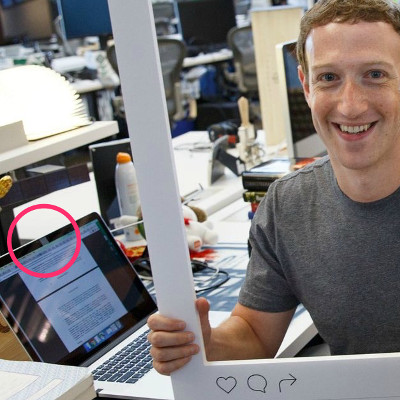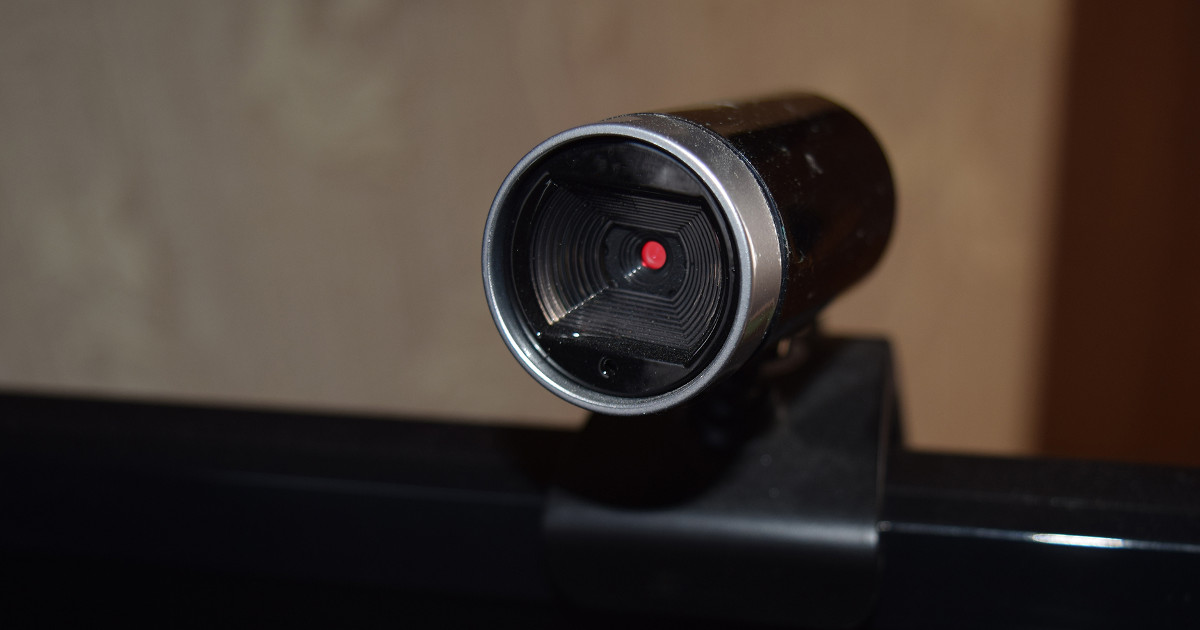Director of the FBI (Federal Bureau of Investigation) James Comey puts tape over his webcam and he wants you to do it too.
Speaking at the recent Center for Strategic and International Studies conference on Wednesday, Comey likened covering your cam to locking your car and the door to your home.
Comey has spent 2016 generating headlines.
In February and March he squared up to Apple who, spying a very slippery slope, declined to help the FBI crack an iPhone used by one of the perpetrators of a mass shooting in San Bernadino, California.
In June he called time on the FBI’s investigation into Hilary Clinton’s personal email server with an incendiary press release that absolved Clinton of “intentional misconduct” but accused her and her team of being “extremely careless”.
April wasn’t exactly quiet either. The man who wants a backdoor to your iPhone faced a tweetnami of snark and schadenfreude for revealing he used a “warrant-proof anti lawful surveillance” device (he puts tape over his webcam.)
Comey admits to being “much mocked” for the admission, made during a question and answer session with students from Kenyon College in Ohio, but on Wednesday he doubled-down.
It was, he said, something you should be doing too:
There’s some sensible things you should be doing, and that’s one of them … You do that so that people who don’t have authority don’t look at you. I think that’s a good thing.
Another great surveiller apparently agrees.
In June Mark Zuckerburg posted a photo of himself that revealed he, too, is taking steps to protect himself from cam-hacking malware.

Putting something, like a cover or tape, over your webcam might seem a little close to wearing a tinfoil hat but it’s actually a good idea.
Hackers who can find a way in to your computer can use their access to install malicious RAT (Remote Access Trojan) software that gives them unfettered access to what you type on the keyboard, say near the microphone or do in front of the camera.
Covering your webcam isn’t a substitute for keeping your systems patched and running effective anti-virus but, if you’re doing both those things, it’s another layer of defence in depth that’s worth considering and easy to apply.
And you don’t have to use tape.

Gary Warner
No, it is NOT like locking your car doors. It is like if you think there might be a burglar in your house, so you close your eyes really tight. The only reason to cover your webcam is IF YOU BELIEVE A CRIMINAL HAS SUCH CONTROL OF YOUR COMPUTER THAT THEY CAN SEE YOU. If a Criminal can control your webcam, they can also access or delete your files, install other malware, login to online services AS YOU, and really anything else they wish. And the solution? ?Cover your webcam? What HORRIBLE advice.
Brian T. Nakamoto
Is the Sophos webcam cover slim enough to allow a MacBook Pro lid to close flush?
Post-it makes black sticky notes for people who want to match a black background (e.g. MBP) with a camera cover that is easily removable and replaceable. One pad contains 80 sheets.
Anonymous
I use black PVC electrical tape, folded over so that only one edge is sticky. Easily removable/reapplicable, doesn’t leave stickiness over the webcan lens (just a strip to one side of it), cheap and long-lasting.
Paul Ducklin
Several of the Naked Security team have MacBook Pros and use Sophos webcam covers.
You will probably want to turn off the “Adjust keyboard brightness in low light” option, or else OS X will think you need the keyboard backlight on all the time. (Use System Preferences | Keyboard. This applies with any webcam cover.)
Also, you probably want to turn off “Automatically adjust brightness” in System Preferences | Displays | Display.
Use the manual controls on the F5/F6 and F1/F2 keys instead…
boringit
Most webcams light to indicate they’re active. Anyone know if these RAT’s can enable the cam without activating the LED?
Anonymous
Depends if the webcam light is controlled by software or hardware. If it’s hardware, the hacker would have a hard time disabling it. If it’s software, it’s probably doable.
Paul Ducklin
IIRC, some cameras have an LED is kind of “hard wired” to the camera, so that firing up the camera fires up the light. Others have a light that can be controlled on its own, independently of the camera. So the problem is, “Which sort of camera hardware do you have?” (Anyway, think of mobile phones: there’s no light at all, neither for webcam nor microphone.)
SMunro
DEFINATELY!
Anonymous
Yes, they can disable the LED
Anonymous
One disadvantage of a webcam cover (at least on a Mac) is that the OS seems to use the webcam to decide how dark it is. So the feature that regulates the brightness of the screen and the keyboard backlight thinks it’s night all the time. Mind you, this implies that the webcam light is under software control, and thus that it cannot be relied on to indicate when the camera is active. That is an advantage of a webcam cover…
alex.theoto
That’s not the case.
I’m afraid that most computer users doesn’t know how to maintain their systems.
Unawareness is your worst enemy.
Take skype for example. Skype sends to M$soft encrypted data and I saw opening webcam without notifying you.
People install add-on or whatever third-party programs which are insecure.
Simon McAllister
I want webcam manufacturers to include a physical switch to isolate the camera. Or I modify my devices this way myself where possible. Either way, covering a camera is a step that I would strongly advise, particularly to non-technical users, as it gives them ‘some’ peace of mind about the protection – a simple step that they can understand. The same isolation feature is needed for the integral microphone too. Then again, I want the same isolation of the battery for iPhones :P
Matt Parkes
Graham Cluley formerly of Sophos is very much in favour of covering his web cams and mobile phone cameras which if you are as he says in your bedroom say getting ready to go to bed then you absolutely don’t want a hacker getting control of your webcam and recording you. but I wander are we taking this too far? I would say if people took more precaution when using the internet or reading and replaying to email and patched regularly and used a good AV or anti malware product then there might not be such a need. Maybe we should not have our mobile devices or laptops in positions where they could capture us doing normal everyday things which aren’t for the whole world to see such as washing and dressing, or taking part in meetings where passwords are hand written on white boards – if all this common sense was used then there would be nothing for hackers to capture.